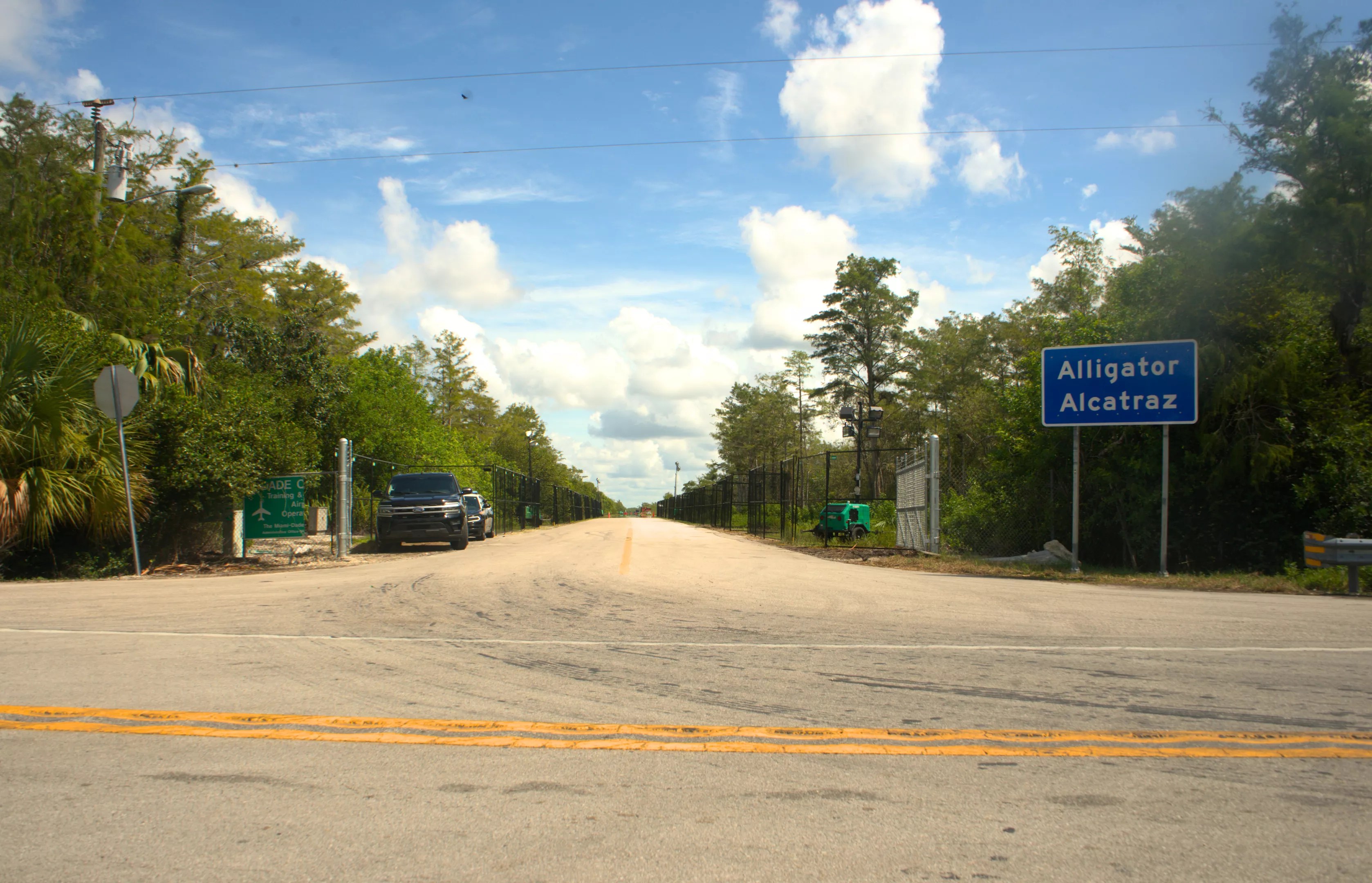
Photo by B. Scott McLendon

Audio By Carbonatix
The Florida Immigrant Coalition has launched a new billboard on Interstate 95 and 7th Street accusing authorities of illegally detaining more than 1,000 people at Alligator Alcatraz, the troubled South Florida detention facility. The nonprofit is also promoting its hotline – 888-600-5762 – to collect stories from detained immigrants and connect the community with legal resources, Florida Immigrant Coalition policy analyst Thomas Kennedy tells New Times.

Nonprofit Florida Immigrant Coalition has continued its billboard campaign against Alligator Alcatraz, accusing authorities of illegally detaining more than 1,000 immigrants there.
Florida Immigrant Coalition
The coalition, which has launched an ongoing campaign against Gov. Ron DeSantis and Alligator Alcatraz, is asking for calls from those who have a family member detained at the South Florida detention center, hoping to use the stories for their advocacy work. It will also help the coalition get the word out about resources it provides, like workshops on naturalization, Deferred Action for Childhood Arrivals (DACA), and Temporary Protected Status, Kennedy says.
“It’s all part of the story-collection process to gain visibility on what’s happening in there,” Kennedy tells New Times. “We’re going to continue to put pressure on it to get it shut down.”
In early July, the coalition put up billboards on I-95 calling for Miami-Dade County Mayor Daniella Levine Cava and county commissioners to sue the state to close Alligator Alcatraz. Florida Division of Emergency Management Executive Director Kevin Guthrie appeared to use the weight of his state position to pressure an advertising company to temporarily remove the billboards, Kennedy previously told New Times.

Florida Immigrant Coalition paid for a pair of billboards demanding Miami-Dade file a lawsuit to shut down Alligator Alcatraz.
Thomas Kennedy
Kennedy says that advertisement company OutFront removed the signs from the electronic billboard rotation on July 8 without notifying the buyers. Guthrie, the executive director for the Florida Division of Emergency Management, called OutFront to ask the company to take down the billboards, “using the power of the state to censor and say the sign was a lie,” Kennedy previously told New Times. “He did the same thing to take down abortion ads.”
The coalition is one of a few groups using billboards to criticize Alligator Alcatraz and those who support it. Late last month, nonprofit Keep Them Honest called Republican Congressmen Mario Díaz-Balart and Carlos A. Giménez hypocrites over their support for Alligator Alcatraz through a pair of billboards on Interstate 95 near Dolphin Expressway in South Florida.
One sign affixes the word “hypocrite” over Díaz-Balart’s and Giménez’s foreheads while indicating that Alligator Alcatraz is 51 miles away. “Supported by sons of immigrants,” it reads.

The electronic signs can be seen on I-95 near Dolphin Expressway.
Keep Them Honest
A second sign calls out Díaz-Balart, Giménez, and Secretary of State Marco Rubio. “In a community of immigrants,” it reads, “where are the voices to protect us?” The word “Trump” – a visual gag meant to suggest their silence is plastered over their mouths. Díaz-Balart and Rubio are sons of Cuban immigrants, while Giménez was born in Cuba.